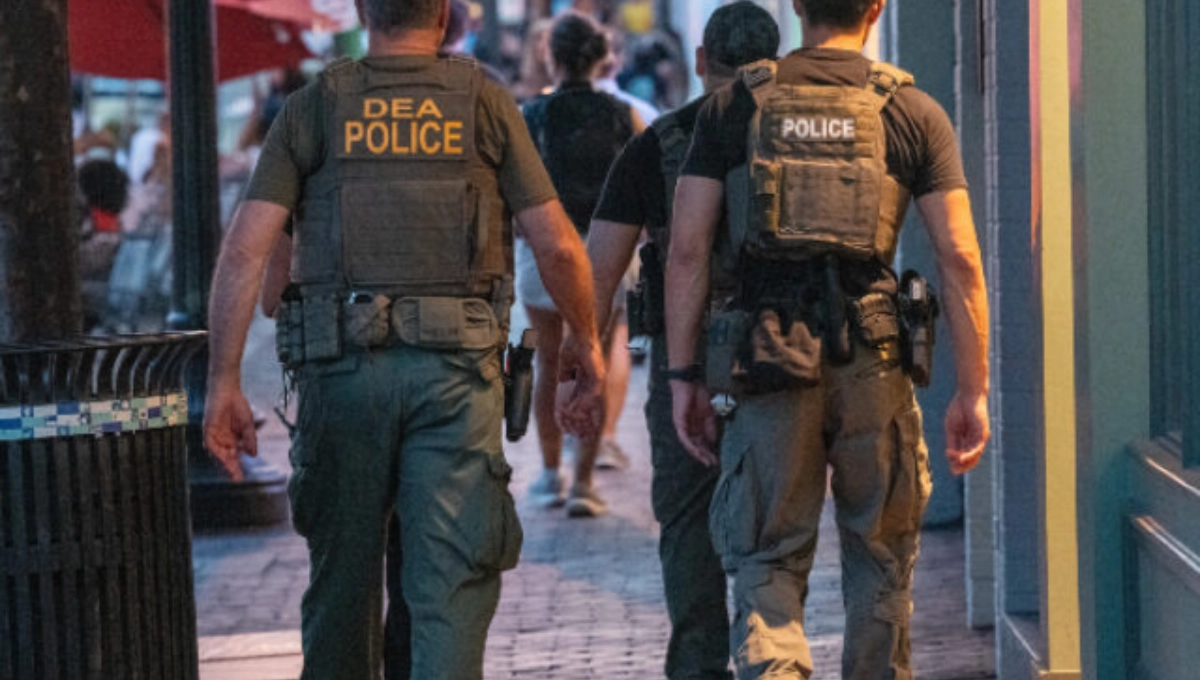In a significant move to disrupt international narcotics trafficking, the U.S. Department of the Treasury’s Office of Foreign Assets Control (OFAC), under the Trump administration, announced sanctions on Monday targeting four Costa Rican nationals and two Costa Rica-based entities for their alleged involvement in cocaine trafficking and money laundering. This action underscores the growing role Costa Rica is playing as a transit hub for drug cartels trafficking cocaine, often laced with deadly fentanyl, into the United States.
Officials and Sanctioned Parties
The key individuals sanctioned include Celso Manuel Gamboa Sanchez, a former vice minister of public security in Costa Rica; Edwin Danney Lopez Vega; Alejandro Antonio James Wilson; and Alejandro Arias Monge, the latter two accused of collaborating closely with Gamboa. The Treasury also targeted two Costa Rican entities: Bufete Celso Gamboa & Asociados, a law firm, and Limón Black Star FC, a local soccer club based in Limón province, which authorities say were fronts used for laundering drug proceeds.
Celso Gamboa is accused of leveraging his position and extensive network of contacts within law enforcement and government to obtain confidential information about counternarcotic investigations and tipping off drug traffickers. It is alleged that he sold such information to criminal targets, bribed officials to facilitate cocaine transport, and managed corrupt operations that moved tens of millions of dollars’ worth of cocaine from Colombia, through Costa Rica, and onwards to the United States and Europe.
Alejandro Antonio James Wilson is reported to have worked in concert with Gamboa to ship cocaine using corrupt port and law enforcement officials to exploit logistical routes. Alejandro Arias Monge remains on the Costa Rican most wanted list in Limón, with a $500,000 reward posted by the U.S. State Department for his capture. Both he and Lopez, also accused in the laundering of drug money, have allegedly evaded arrest through protection afforded by Gamboa’s governmental contacts.
Context and Cooperation
Costa Rica’s escalating role as a strategic drug trafficking corridor has alarmed U.S. authorities. The Drug Enforcement Administration (DEA) has identified Costa Rica as a significant waypoint for cocaine destined for American streets, where overdose deaths linked to the drug topped 22,000 within a year ending October 2024.
The sanctions were coordinated with the DEA’s offices in Costa Rica and Dallas, as well as Costa Rica’s Office of the Attorney General. These efforts build upon previous actions, including last November’s sanction of Gilbert Hernan de Los Angeles Bell Fernandez, known as “Macho Coca,” a notorious drug trafficker in Limón. In June this year, Costa Rican law enforcement arrested Gamboa and Lopez following a constitutional reform passed in May permitting the extradition of nationals accused of drug trafficking and terrorism offenses.
Statements from Authorities
“The drug cartels are poisoning Americans and making our communities more dangerous by trafficking cocaine, often laced with fentanyl, into the United States,” said Treasury Under Secretary for Terrorism and Financial Intelligence John K. Hurley. He emphasized that these sanctions target critical smugglers involved in transporting drugs and that the Treasury, alongside U.S. law enforcement and Costa Rican partners, will continue to deploy all available tools to disrupt narcotrafficking organizations threatening American safety.
Brian E. Nelson, Under Secretary of the Treasury for Terrorism and Financial Intelligence, highlighted the shared commitment between the United States and Costa Rica to address the surge in violent crime fueled by narcotics trafficking. “The United States will continue to partner with the government of Costa Rica, as well as with key partners in the region, to leverage collective tools and authorities against these illicit networks,” he stated.
Broader Crackdown on Drug Cartels
This action is part of a wider crackdown under President Donald Trump’s administration, which has aggressively targeted drug trafficking organizations across Latin America. Recent measures include sanctions on Mexican cartels such as Carteles Unidos and Los Viagras, and disrupt operations in Guyana and Mexico involving significant cocaine shipments. The administration has also designated several regional cartels as foreign terrorist organizations and is reportedly considering military options against some Latin American drug groups.
The U.S. Justice Department is employing rewards and coordinated international efforts to bring cartel leaders to justice, reflecting the administration’s commitment to dismantle powerful drug trafficking networks and reduce the influx of narcotics into the country.
Conclusion
The recent sanctions on Costa Rican nationals and entities signal a focused intensification of efforts by the Trump Treasury Department to disrupt cocaine trafficking routes through Central America. With coordinated law enforcement cooperation between the United States and Costa Rica, and legal reforms facilitating extradition, the administration aims to dismantle the critical nodes enabling drug cartels’ operations.


